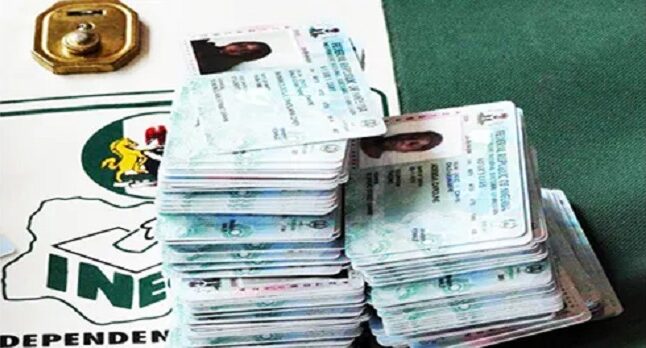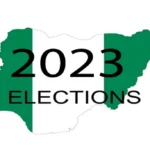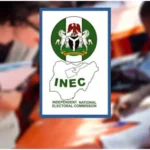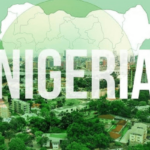The resonating lamentations in recent weeks by the Independent National Electoral Commission (INEC) over the low collection rate of the Permanent Voters’ Cards (PVCs) in many states of the federation have not only become a source of worry but also a threat to the 2023 general elections that are only a few weeks away. The fact that the PVCs have been produced by the commission but are not being collected by registered voters makes the matter appear complex. It also sounds ridiculous that the lamentations over PVC collection are rather coming from the country’s electoral body.
The INEC recently raised the alarm that no fewer than 6.7 million Nigerians are yet to collect their PVCs in 17 states and the Federal Capital Territory (FCT). Of this figure, 2.1m PVCs are in Lagos and Abuja as at December 29, 2022; with over 1.6m unclaimed PVCs in Lagos State. A document from the commission categorises the uncollected PVCs in Lagos State into 916,961 old cards and 777,002 new cards. Meanwhile, 460,643 PVCs were uncollected in 11 years in the FCT.
To address the situation, the INEC has devolved PVC collection to registration areas and wards across the 774 LGA offices of the commission in the country. The INEC National Commissioner and Chairman, Information and Voter Education Committee, Festus Okoye, said beginning January 15, 2023, the exercise will revert to the LGA offices of the commission until January 22, 2023, which is the last day for PVC collection. To ease collection, INEC has made provisions for PVC collection centres to remain open from 9am to 3pm daily, including Saturdays and Sundays.
Although the INEC Director of Voter Education in Lagos State, Mrs Adenike Tadeshe, explained to reporters that the situation is not as bad as painted, her argument that over 5.8m PVCs have been collected in the state and only 1.6m are left uncollected is weak. Regardless of how small the number of uncollected PVCs, voting is a civic duty – a strong reason why citizens must go and pick up theirs. Besides, while the number of unclaimed PVCs may not seem huge within the context of registered voters in Lagos State, it is in states like Edo and Oyo where over 600,000 and over 700,000 PVCs have not been collected, respectively.
- NIGERIA DAILY: How Gun Runners Are Fueling Insecurity In Zamfara State
- Police kill suspected robber, arrest another
With voter apathy usually characterising every round of general elections in Nigeria, the low collection rate of PVCs is likely to worsen the situation in the 2023 elections. It could be recalled that while the INEC said it had about 82.3m registered voters in the 2019 general elections, only 28.6m voted in the polls. This isn’t good enough for the well-being and survival of democracy.
The problem with low PVC collection, indeed, goes beyond voter apathy. Possible reasons to explain the situation may include the general careless attitude of many Nigerians, typified by their last-minute rush when it comes to civic duties. This has been a recurring decimal among Nigerians. Long hours of waiting at PVC collection points arising from unnecessary red-tape procedures could also slow down PVC collection. INEC is urged to ease the collection procedure without also compromising or short-changing the system.
The insinuation that some registered voters cannot find their PVCs at collection centres cannot be sufficiently generalised and therefore, not tenable.
Since it’s a right for citizens to be registered in order to vote or be voted for in an election, the onus is on them to go back and collect their PVCs after being registered. Certainly, with every right comes a corresponding responsibility. It beats one’s imagination why anyone would want to disenfranchise himself, after all.
The failure to address the plausible factors responsible for the slow collection of PVCs, including administrative lapses or logistic gaps, would simply be equal in effect to disenfranchising owners of the uncollected 6.7m PVCs in 17 states and the FCT; a number huge enough to threaten the results of the 2023 elections. Moreover, the mandate of INEC is not to produce PVCs that will remain uncollected. INEC would have failed even if the uncollected PVCs were contextually an insignificant percentage.
INEC is encouraged to aggressively use its social media handles in addition to running jingles and paid adverts on radio and television stations, all for the sake of encouraging registered voters to collect their PVCs. Political parties should mobilise the public, including their supporters, for PVC collection. The authority of traditional rulers to reach out to their subjects could be explored by INEC. Civil society organisations (CSOs) should be talking to Nigerians about PVC collection.
A permanent solution rests with making the National Identification Number (NIN) work effectively. Where enabling laws are duly enforced and national data bases are synchronised, there would be no need for any Continued Voter Registration (CVR) or PVC collection as the NIN, which carries a citizen’s biometric data and date of birth, can effectively replace the PVC. Meanwhile, INEC must do everything within the law to avert any potential threats to the 2023 elections.

 Join Daily Trust WhatsApp Community For Quick Access To News and Happenings Around You.
Join Daily Trust WhatsApp Community For Quick Access To News and Happenings Around You.


